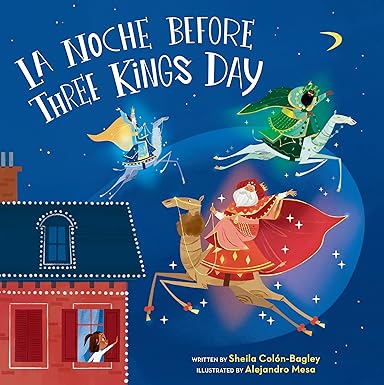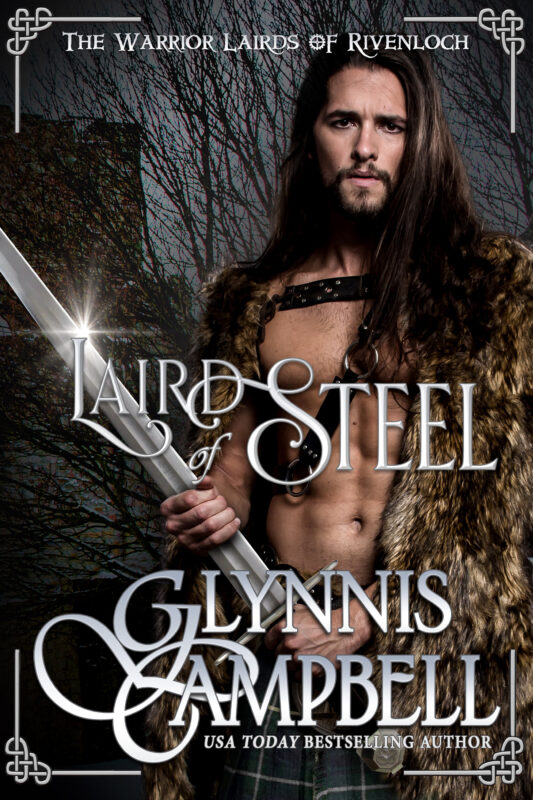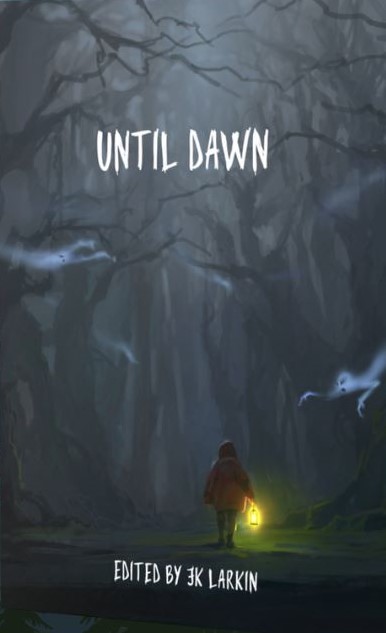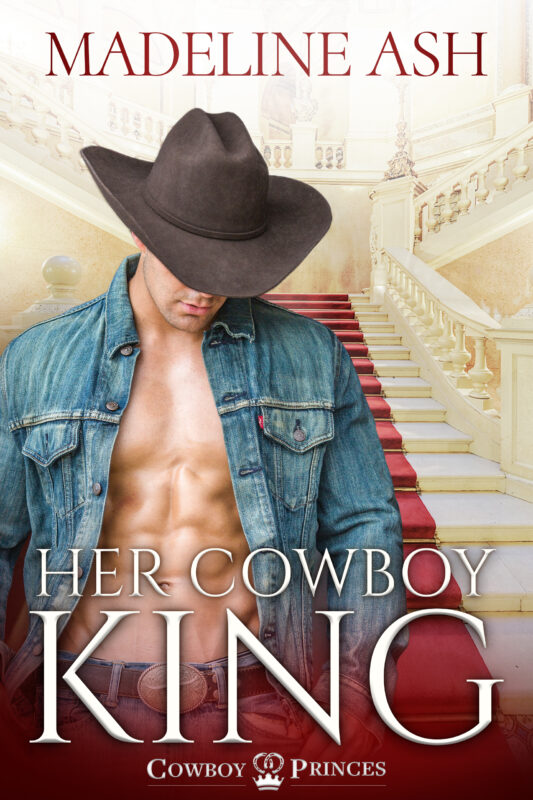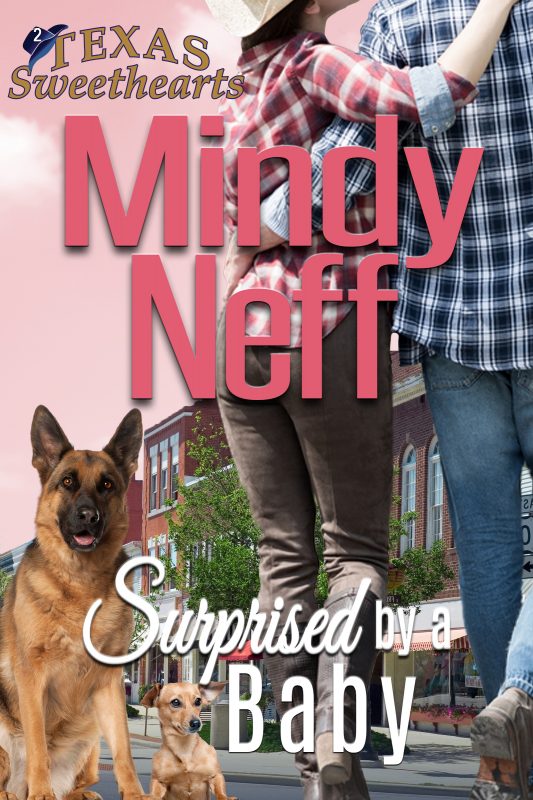Monty Hall & Me by Rebecca Forster @Rebecca_Forster
October 15, 2017 by Rebecca Forster in category The Write Life by Rebecca Forster, Writing tagged as children, Family, game shows, inspiration, life choices, Life Lessons, Monty Hall, television, writing inspiration “This is a story about Monty Hall, the velvet-voiced, handsome host of Let’s Make a Deal. He passed away recently and it broke my heart because Monty Hall and I had a history.
“This is a story about Monty Hall, the velvet-voiced, handsome host of Let’s Make a Deal. He passed away recently and it broke my heart because Monty Hall and I had a history.
I was a little depressed after I had my first baby and longing to get back to ‘the real world’ when I saw an ad: be a contestant on Let’s Make a Deal. Contestants were supposed to dress up as something funny but there was nothing funny about a postpartum mommy body so I went for the sympathy angle. I cut up a crib mobile made of fabric hearts, sewed the hearts onto a white hat and made a sign that said: HAVE A HEART, LET’S MAKE A DEAL. The neighbor watched the baby and I drove to Hollywood where two hundred people were lined up against a chain-linked fence outside the studio. They were dressed like alligators, killer clowns and French maids. I joined the fray just as a young producer trolled the line, pointing at people.
“You. You. You. That’s it for today. Come back another time.”
OMG! He didn’t pick me. There I was literally wearing my heart – okay, not on my sleeve – but all over me. I threw myself at him. I grabbed his sleeve. I begged.
“I NEEEEDDDDDD TO GET IN THAT STUDIO! I JUST HAD A BABY.”
He let me in.
Once inside, the producers advised us to make eye contact with Monty Hall. Check. No matter where he went my eyes bored into him. He itched, he freaked, he couldn’t figure out where the laser points of focus were coming from and he kept looking for the source. Then he saw me the crazy, desperate lady in the white hat with dancing hearts on it. I think he chose me just to make me stop glaring at him. I got all the way to the big deal and lost, but that was fine. My consolation prize was a two-week trip to the Bahamas and a thousand dollars. I went home happy. Monty Hall probably went home and had nightmares for weeks.
Fast-forward 32 years. Monty Hall is sitting behind my family and me in the theater. He is a little stooped, silver-haired, but still handsome. When my family goes to stretch their legs, I introduce myself and tell him the story that has become a legend in our family. He is gracious. He chats with me until the house lights dim. Before we take our seats, he asks:
“How old is the baby now?” As if on cue, my thirty-two-year-old son walked down the aisle. They shook hands. The house lights went down. We all watched the end of the play. I gave my son’s hand a squeeze. Life was good.
As if on cue, my thirty-year-old son walks down the aisle. They shake hands. The house lights go down. We watch the end of the play. I give my son’s hand a squeeze. Monty Hall walks out of the theater ahead of us and I never see him again.
The moral of the story is this: choose a door, any door but choose. What is behind that door will be exciting or surprising, charming or even challenging, but you will be better for turning the knob.
Monty Hall was behind two of my life’s doors. He made me feel lucky once and honored the second time. TY Monte Hall. I know that the door that opened for you not so long ago will be the biggest deal of all and you deserve that heavenly prize.
P.S. That is not me in the picture.
0 0 Read morePaths by Sally Paradysz @A_SliceofOrange
October 13, 2017 by Sally Paradysz in category From a Cabin in the Woods by Members of Bethlehem Writers Group, Writing tagged as journey, life, Paths, writing
Paths
I love paths. We have one that goes to the field for our tractor, but the best ones are those I’ve made to my writing/meditation cabin, and the one I use to walk to the field. These two I’ve lined with rocks and as I stroll by I’m always amazed by the large roots that grow above ground. Different and yet so eye catching. It took a long while to clear the brush away, find and place the stones alongside, and then try to keep them clear enough to follow over the years.
Special attention paid to the little things on my land makes a huge difference to me. These are the points of life that mark my growth as I go forward. Time spent in nature with love and opportunity all encompassed into this one small three-acre-place that I call home.
God has given us a world full of hope for everything and everyone. We are all unfinished people, moving forward at the rate of speed we are meant to travel. And as we wander on our different paths, finding and following our own heart’s desires, let us take time to be thankful for what we have right now. It can all change in a moment, and then this opportunity will be behind us….
Sal

Sally Paradysz writes from a book-lined cabin in the woods beside the home she built from scratch. She is an ordained minister of the Assembly of the Word, founded in 1975. For two decades, she has provided spiritual counseling and ministerial assistance. Sally has completed undergraduate and graduate courses in business and journalism. She took courses at NOVA, and served as a hotline, hospital, and police interview volunteer in Bucks County, PA. She is definitely owned by her two Maine Coon cats, Kiva and Kodi.
You can like Sal on Facebook, or read her monthly column, From a Cabin in the Woods, here on A Slice of Orange, or on her personal blog, Sally Paradysz.
2 0 Read moreBring Your Teddy Bear to Work and School Day and don’t forget the mocha latte by Jina Bacarr
October 11, 2017 by Jina Bacarr in category Jina’s Book Chat, Writing tagged as author, latte, novels, princess, royal, teddy bear, Teddy Bear Work Day, writingWriters write.
Teddy bears cuddle.
Who is in more need of a cuddle than a writer staring at the empty page?
So on Bring Your Teddy Bear to Work and School Day, grab those wonderful teddies and sit them next to your computer. Then watch the words fly onto the page as they whisper into your ear. Helping you write that love scene with more oomph…or googling research for you.
But if your teddy bears are like mine, they don’t work for peanuts.
Nope. It’s got to be double lattes. Pumpkin spice and a salted caramel mocha.
Who am I to argue? I think I’ll join them…delicious.
Happy writing!
~Jina
PS — I’m working on a new Royals of Monterra Kindle Worlds for Christmas called Royal Noel.
Here’s a video with my current Monterra novels available on Amazon:
The Royals of Monterra — 4 books! from Jina Bacarr on Vimeo.
Royals of Monterra series:
Twisted Tiaras:
Book 1: Royal Dare: It ain’t easy getting clean . . . even for a princess.
Nothing Found
Book 2: Royal Bride: Can a sexy prince give a girl a second chance at love?
Nothing Found
Book 3: Royal Kiss: Even a goody two shoes princess can get lost down the rabbit hole.
Nothing Found
———–
Fairy Tales & Magic:
Royal Magic: The magic is in his kiss . . . a Philly girl falls in love with a royal magician.
Nothing Found
2 0 Read more
Quarter Days: Michaelmas Goose
September 28, 2017 by Alina K. Field in category Quarter Days by Alina K. Field, Writing tagged as Harvest Festivals, historical, John Milton, Michaelmas, Paradise Lost, Quarter Days, St. Michael
A Michaelmas Goose Market
Michaelmas
Greetings to everyone, especially my fellow history nerds. It’s September 28th, time for another installment of my Quarter Days blog.

Southwark Fair, September 1733, Hogarth
I’m a huge fan of feasting holidays, and much to my surprise, Michaelmas, September 29th, is one of those.
Harvest Time
It makes sense though. In every culture where there’s an autumn harvest, there’s an autumn harvest festival, like a Polish Dozynki or a German Oktoberfest. Some sources say that Michaelmas is still celebrated in England with roast goose and other goodies, like this fun Michaelmas dragon bread.
Last June I blogged about Midsummer’s Day, one of the Quarter Day holidays, and pretty self-explanatory. The same is true for this holiday—tomorrow is the feast of St. Michael the Archangel, he who battled Satan. 
In Fiction
I first encountered a mention of Michaelmas in Jane Austen’s Persuasion, and most recently saw a reference in fellow Regency author Caroline Warfield‘s latest release, The Reluctant Wife, where a character must get back to England for the Michaelmas Term at his university. For a historical author, a mention of Michaelmas is a wonderful device for setting the time of the story without citing a specific date.
Paradise Lost
One blogger claims that St. Michael was popular in Regency England because of the influence of John Milton’s Paradise Lost, a late seventeenth-century epic work. Researching this post inspired me to pull out my copy of the Complete Poems and Major Prose of Milton which, to be honest, I haven’t opened since my university days.
Paradise Lost is something of an early paranormal story of nearly invincible beings and shapeshifters:
…the sword of Michael from the Armory of God was giv’n him temper’d so, that neither keen nor solid might resist that edge: it met the sword of Satan with steep force…deep ent’ring sher’d all his right side; then Satan first knew pain…but th’ Ethereal substance clos’d not long divisible…Yet soon he heal’d; for Spirits that live throughout vital in every part not as frail man….cannot but by annihilating die…All Heart they live, all Head, all Eye, all Ear, All Intellect, all Sense, and as they please, they Limb themselves, and color, shape or size assume as likes them best…

A Servant Hiring Hall, Rowlandson
Contracts, Rents, and Work
And of course, as I mentioned in my June post, Michaelmas was a day to pay rents (possibly in kind, with a fatted goose) to hire and pay servants, and sign contracts.
Do you celebrate Michaelmas? If so, please share in the comments!
Have a magical Michaelmas, and I shall return in three months to talk about the next Quarter Day, Christmas!
2 0 Read more
Stories My Mother Told Me
September 14, 2017 by Rebecca Forster in category Writing tagged as Craft, experience, Family, life, mother, writingMy mother will be 93 years old on September 21. She travels with me, reads all my books and is my best friend. I wrote this blog some time ago, but I want to share it again because it deserve repeating that she is an amazing woman. I am so proud of my mom. Happy birthday, mom.
_________

Mom at 92
My parents made a pact to stand on every continent in the world. When my dad passed away, my mother went to the Antarctic for both of them. That’s when I figured there was a lot I didn’t know about mom.
When she returned with a bright orange jacket that she got ‘for free’ (don’t count the cost of the cruise) she had lots of stories to tell. Yet, when the excitement of the trip wore off, we both had the sense that we were still standing on a pitching deck with no way to get to calm seas. A big piece of the puzzle – my dad – was missing.
“Write your memoir,” I said.
“My life wasn’t interesting,” she answered.
But the idea must have taken hold. Not long after this conversation, she called. She was done with her memoir.
“Impressive,” I mused.
It took me months to write a novel and she finished hers in a week. Then I saw why. Her ‘manuscript’ was five pages long and she was eighty-five years old. There had to be more.
And so began a year of weekend sleep-overs as we poured over photographs for inspiration. She had twenty beautifully documented photo albums, a box with pictures when cameras were still a new fangled thing.
There was mom wearing waist-length braids and Mary Jane shoes standing in the Germany village she called home.
She was a teenager in the U.S. while war raged in Europe, catching up the grandmother she had lived with, cousins and friends.
There was my mom posing in a swimsuit she bought with the dollar she found on the street.
Mom in her twenty-five dollar bridal gown perched in the back of a hay wagon beside my father, a skinny, wide-eyed farm boy who would become a doctor.
Mom with one child. Two. Three. Five. Six of us all together. Dark haired and big eyed we were her clones dressed in beautiful, homemade clothes. I remember going to sleep to the sound of her sewing machine.
And there were words! I bribed my mother with promises of Taco Bell feasts if she gave me details. Funny, what came to her mind.
To keep body and soul together when my father was in med school, he was a professional mourner and bussed tables for a wealthy fraternity. My mom worked in a medical lab where the unchecked radiation caused her to lose her first baby. They ate lab rabbits that had given their all for pregnancy tests. They were in love and happy and didn’t know they were poor. But St. Louis was cold, she remembered, and they couldn’t afford winter coats. Still, she insisted, they weren’t poor. I listened and knew they were happy.
She typed, I edited; I typed, she talked. My youngest brother almost died when he was 10. She didn’t cry for a long while; not until she knew he would live. The captain of the ship that took her back to Germany was kind. She dreamed of becoming a missionary doctor. In 1954, she had two toddlers (me and my brother) and another baby on the way when she and dad drove to Fairbanks, Alaska where he would serve his residency at the pleasure of the U.S. Air Force. Her favorite outfit was a suit with a white collar. She loved her long hair rolled at her neck in the forties. In the fifties she made a black dress with rhinestone straps and her hair was bobbed. In the sixties, she made palazzo pants and sported a short bouffant. She looked like a movie star in her homemade clothes. I wanted to grow up to be as glamorous as she was. She still thought she wasn’t interesting.
Mom wrote the forward to her memoir herself. It began:
A great sense of loneliness fills the house as twilight approaches. In the silence, I can almost hear the voices of my grown children as they recall their childhood years, the laughter of grandchildren and the quiet conversations of friends who have gathered here in years past, echoing through the empty rooms.
You see, she really had no need of my help as a writer.
We had seven copies printed with a beautiful cover of a sunset. She called the book In The Twilight of My Life and would not be swayed to change it. Mom thought it perfect and not the least depressing. It was, she laughed, exactly right. It was the laugh that made it right. She gave my brothers and sisters a copy for Christmas. My older brother had tears in his eyes. Everyone exclaimed: “I never knew that”.
Now I have a book more treasured than any I have written. I learned a lot about my mom and I realized why I create fictional women of courage and conviction, strength and curiosity, intelligence and, most of all, spirit. It’s because, all this time, I’ve been writing about my mother.
4 0 Read more
Affiliate Links
A Slice of Orange is an affiliate with some of the booksellers listed on this website, including Barnes & Nobel, Books A Million, iBooks, Kobo, and Smashwords. This means A Slice of Orange may earn a small advertising fee from sales made through the links used on this website. There are reminders of these affiliate links on the pages for individual books.
Search A Slice of Orange
Find a Column
Archives
Featured Books
LA NOCHE BEFORE THREE KINGS DAY
La Noche Before Three Kings Day is a perfect holiday tale.
More info →LAIRD OF STEEL
Gellir faces the one intrepid warrior he may not be able to conquer.
More info →Newsletter
Contributing Authors
Search A Slice of Orange
Find a Column
Archives
Authors in the Bookstore
- A. E. Decker
- A. J. Scudiere
- A.J. Sidransky
- A.M. Roark
- Abby Collette
- Alanna Lucus
- Albert Marrin
- Alice Duncan
- Alina K. Field
- Alison Green Myers
- Andi Lawrencovna
- Andrew C Raiford
- Angela Pryce
- Aviva Vaughn
- Barbara Ankrum
- Bethlehem Writers Group, LLC
- Carol L. Wright
- Celeste Barclay
- Christina Alexandra
- Christopher D. Ochs
- Claire Davon
- Claire Naden
- Courtnee Turner Hoyle
- Courtney Annicchiarico
- D. Lieber
- Daniel V. Meier Jr.
- Debra Dixon
- Debra H. Goldstein
- Debra Holland
- Dee Ann Palmer
- Denise M. Colby
- Diane Benefiel
- Diane Sismour
- Dianna Sinovic
- DT Krippene
- E.B. Dawson
- Emilie Dallaire
- Emily Brightwell
- Emily PW Murphy
- Fae Rowen
- Faith L. Justice
- Frances Amati
- Geralyn Corcillo
- Glynnis Campbell
- Greg Jolley
- H. O. Charles
- Jaclyn Roché
- Jacqueline Diamond
- Janet Lynn and Will Zeilinger
- Jaya Mehta
- Jeannine Atkins
- Jeff Baird
- Jenna Barwin
- Jenne Kern
- Jennifer D. Bokal
- Jennifer Lyon
- Jerome W. McFadden
- Jill Piscitello
- Jina Bacarr
- Jo A. Hiestand
- Jodi Bogert
- Jolina Petersheim
- Jonathan Maberry
- Joy Allyson
- Judy Duarte
- Justin Murphy
- Justine Davis
- Kat Martin
- Kidd Wadsworth
- Kitty Bucholtz
- Kristy Tate
- Larry Deibert
- Larry Hamilton
- Laura Drake
- Laurie Stevens
- Leslie Knowles
- Li-Ying Lundquist
- Linda Carroll-Bradd
- Linda Lappin
- Linda McLaughlin
- Linda O. Johnston
- Lisa Preston
- Lolo Paige
- Loran Holt
- Lynette M. Burrows
- Lyssa Kay Adams
- Madeline Ash
- Margarita Engle
- Marguerite Quantaine
- Marianne H. Donley
- Mary Castillo
- Maureen Klovers
- Megan Haskell
- Melanie Waterbury
- Melisa Rivero
- Melissa Chambers
- Melodie Winawer
- Meriam Wilhelm
- Mikel J. Wilson
- Mindy Neff
- Monica McCabe
- Nancy Brashear
- Neetu Malik
- Nikki Prince
- Once Upon Anthologies
- Paula Gail Benson
- Penny Reid
- Peter J Barbour
- Priscilla Oliveras
- R. H. Kohno
- Rachel Hailey
- Ralph Hieb
- Ramcy Diek
- Ransom Stephens
- Rebecca Forster
- Renae Wrich
- Roxy Matthews
- Ryder Hunte Clancy
- Sally Paradysz
- Sheila Colón-Bagley
- Simone de Muñoz
- Sophie Barnes
- Susan Kaye Quinn
- Susan Lynn Meyer
- Susan Squires
- T. D. Fox
- Tara C. Allred
- Tara Lain
- Tari Lynn Jewett
- Terri Osburn
- Tracy Reed
- Vera Jane Cook
- Vicki Crum
- Writing Something Romantic
Affiliate Links
A Slice of Orange is an affiliate with some of the booksellers listed on this website, including Barnes & Nobel, Books A Million, iBooks, Kobo, and Smashwords. This means A Slice of Orange may earn a small advertising fee from sales made through the links used on this website. There are reminders of these affiliate links on the pages for individual books.





